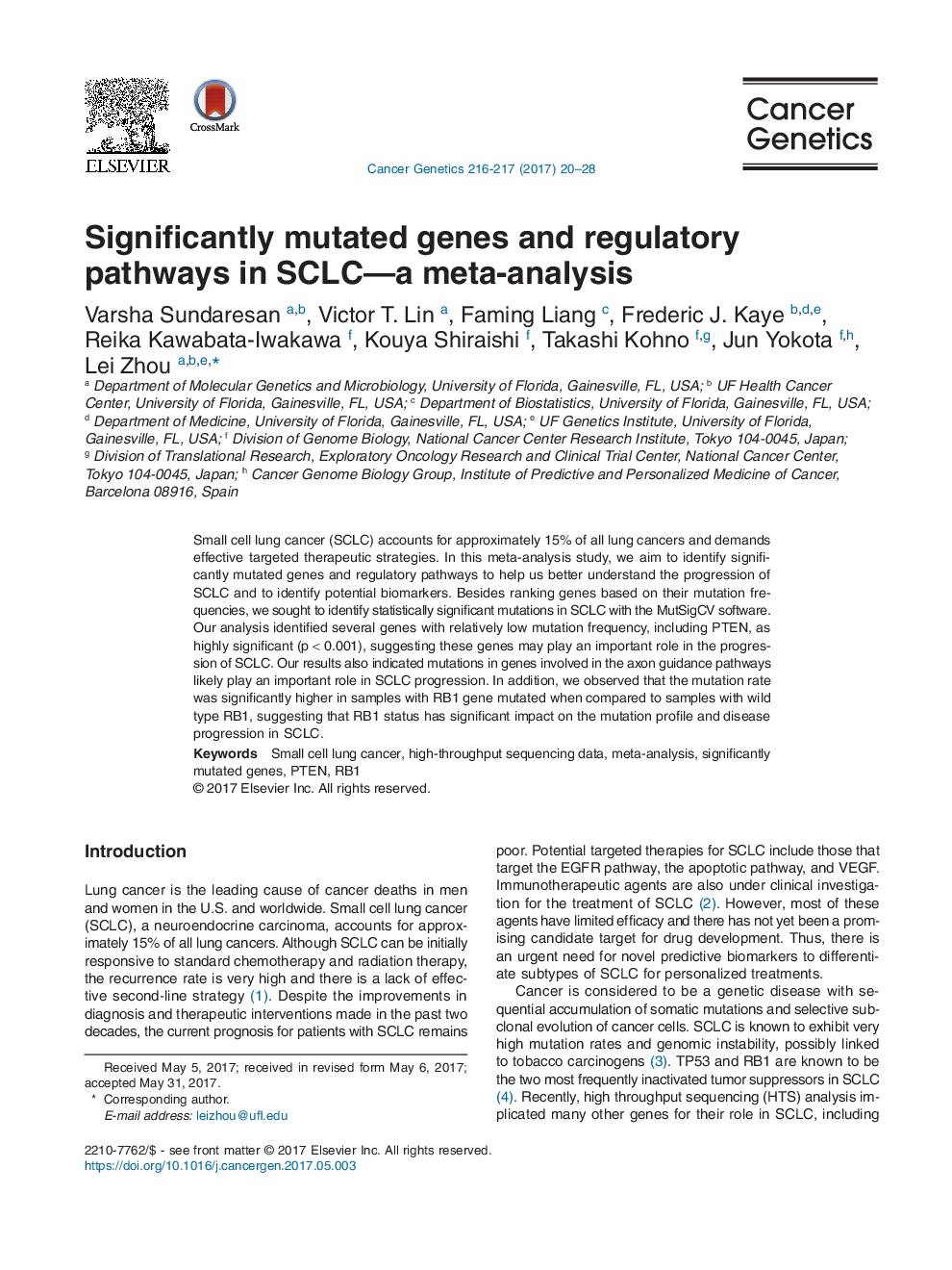| Article ID | Journal | Published Year | Pages | File Type |
|---|---|---|---|---|
| 5525024 | Cancer Genetics | 2017 | 9 Pages |
â¢Genes with low mutation frequencies were identified as highly significant in SCLC.â¢Axon guidance pathway genes are likely to play an important role in SCLC.â¢Mutation rate is higher in samples with RB1 mutation compared to those with wild type RB1.
Small cell lung cancer (SCLC) accounts for approximately 15% of all lung cancers and demands effective targeted therapeutic strategies. In this meta-analysis study, we aim to identify significantly mutated genes and regulatory pathways to help us better understand the progression of SCLC and to identify potential biomarkers. Besides ranking genes based on their mutation frequencies, we sought to identify statistically significant mutations in SCLC with the MutSigCV software. Our analysis identified several genes with relatively low mutation frequency, including PTEN, as highly significant (pâ<â0.001), suggesting these genes may play an important role in the progression of SCLC. Our results also indicated mutations in genes involved in the axon guidance pathways likely play an important role in SCLC progression. In addition, we observed that the mutation rate was significantly higher in samples with RB1 gene mutated when compared to samples with wild type RB1, suggesting that RB1 status has significant impact on the mutation profile and disease progression in SCLC.
